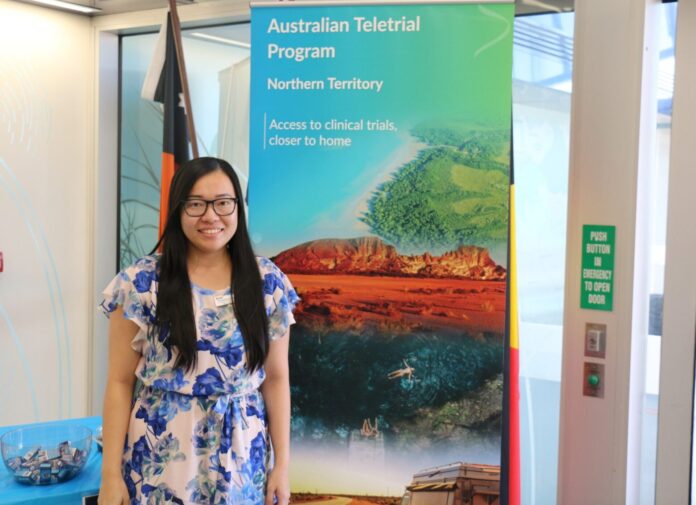Territorians living in remote locations will be able to take part in cutting-edge clinical trials closer to home for the first time, with the launch of the Australian Teletrial Program (ATP) in the NT.
The ATP is supported by funding from the Australian Government under a $75.2 million grant from the Medical Research Future Fund (MRFF).
Over a five year period, the program will bring clinical trials closer to home for patients in Queensland, Victoria, Tasmania, South Australia, Western Australia and the NT.
“Having access to these clinical trials is important for Territorians,” said Chief Minister, Natasha Fyles.
“Access to teletrials locally in the NT will help to improve health outcomes for Territorians. Other benefits will include a reduction in the need to travel long distances and costs related to clinical trial participation for patients and their families.
“Participation in the ATP will boost the NT’s clinical research sector, with flow-on effects to include improvements in facilities, equipment, services and systems in both urban and remote locations, and greater opportunities for the research workforce.”
NT Health and the Territory Government is a national partner in the program and has secured a $5 million share of the MRFF grant for local implementation.
Teletrials is a model which connects remote clinical trial site clusters with a primary trial site. The primary site supports satellite sites to build local research capacity and capabilities to help improve equitable access to clinical trials.
In the NT, the program will link patients living in regional and remote locations with urban-based and interstate research programs and trial treatments.
There are many medical staff and researchers involved in a teletrial, representing multiple hospitals in different locations. They use digital communication, such as video conferencing, to closely communicate with each other and work as one team.
Teletrial patients will have some of their treatment at their local hospital or health centre, with supervision and support provided by the primary site. Depending on the complexity of the teletrial, patients may need to travel to one of the other hospitals involved for things such as speciality scans or blood tests.
To implement the ATP across the Territory, a multidisciplinary team was established. To date the team has activated three clinical trials under the program, including:
- The ASCEND Trial – Royal Darwin Hospital, in collaboration with Queen Elizabeth Hospital in Adelaide, will provide NT patients with access to medications for the treatment of metastatic pancreatic cancer. The first patient from the NT has recently been recruited. For more information about this trial, visit: https://gicancer.org.au/clinical-trial/ascend/
- The Agile-ECHO Trial – based in Central Australia and the Barkly region, the trial will compare the effectiveness of artificial intelligence (AI)-guided echocardiography (a heart ultrasound) with standard care. The study aims to improve the rate of early detection of heart failure and heart valve disease in rural and remote communities by enabling a non-expert, guided by AI software, to complete an echocardiogram. The results will then be available to specialists via the cloud. This will reduce the need for patients to travel and establish new staff roles in remote health centres. 16 patients from the NT have been recruited to this trial.
- The Telenutrition and Kidney Health Study – led by allied health professionals across the Top End, Central Australia and Barkly regions, this trial will examine the impact of a mobile health app on controlling serum phosphate levels in dialysis patients. The trial aims to prevent high levels of phosphate which can make a patient’s bones week. Five patients from the NT have been recruited for this trial.
Recruitment is continuing for the three activated clinical trials, with 22 patients confirmed to date.
Work is underway to identify additional teletrial suitability across a range of specialties in the NT, including oncology, haematology, cardiology, dermatology, paediatrics, renal, endocrinology (hormonal disorders), neurology, respiratory and surgery.



